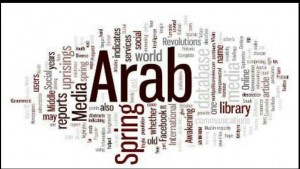Since Morocco’s adoption of more democratic constitution during the Arab Spring, the arrest of political activists has increased, the country’s main human rights group said Monday.
Morocco prided itself for avoiding the turmoil of the Arab Spring by enacting reforms and amending the constitution, but activists say at least 70 members of their pro-democracy February 20 movement remain in prison.
“The arrests of activists have increased since the adoption of a new constitution in July 2011,” Mohammed Sadkou of the Moroccan Association for Human Rights said. “The most worrying is that they are prosecuting political activists for ordinary criminal offenses… we are returning to the Tunisian model.”
Under authoritarian President Zine El Abidine Ben Ali, Tunisia was known for targeting political activists for trumped up criminal charges until his overthrow in January 2011 that sparked pro-democracy uprisings across North Africa, including Morocco.
King Mohammed VI defused popular anger by amending the constitution to give more power to elected officials and then holding early elections that were won by an Islamist opposition party.
Activists from the February 20 movement, named for the day in 2011 their protests began, maintain the reforms are illusory and the corruption and despotism of the system persists.
Since the end of 2011, however, their demonstrations have garnered little obvious support, shrinking generally to a few hundred in size.
An attempt by the movement to hold marches in several cities Sunday to call attention to their jailed colleagues were brutally repressed by police, with 23 injured in Rabat alone, including elderly members of the human rights organization, it said. There were no arrests, however.
During the press conference, defense lawyer Naima El Guellaf said that Morocco feared tarnishing its international image as a reformer by jailing activists on charges of unauthorized protests and so has changed tactics.
“The authorities realized that these trials hurt their image as a country respecting human rights, so they started convicting activists in criminal trials,” she said.
Driss Boutarda was known for his creative costumes during protest marches, including dressing up in an outfit reminiscent to that of the king. He was arrested in December 2012 and charged with drug possession.
Guellaf’s client Hamid Majdi, a labor activist in the southern city of Ouarzarzate, was charged with drug trafficking, though he was eventually acquitted.
In an interview with French television in February, however, Prime Minister Abdelilah Benkirane maintained that there were no political detainees in Morocco.







